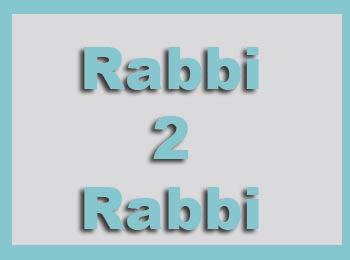The human condition is fragile, and most days we can deny it. But on the High Holidays, Unetaneh Tokef cuts through the charade that we control our lives and calls our bluff.
RABBI YAEL SPLANSKY
HOLY BLOSSOM TEMPLE, TORONTO
RABBI MARK FISHMAN
CONGREGATION BETH TIKVAH, MONTREAL
Rabbi Splansky: Unetaneh Tokef is one of the centrepieces of our High Holiday liturgy and the most often misunderstood.
Rabbi Ephraim bar Yaakov of Bonn, an eyewitness to the Second Crusade of 1146, attributes the prayer-poem to Rabbi Amnon of Mainz, a wealthy man of stature whose life ends in brutal martyrdom. According to legend, on Rosh Hashanah, with his last breaths, Rabbi Amnon began: “Let us proclaim the sacred power of this day, for it is awesome and full of dread.”
Rabbi Amnon asks and answers the age-old question: what is the purpose of my life? And with his last verse, the soul of Rabbi Amnon departed this world.
There is no prayer more challenging, no more damaging, no more true than Unetaneh Tokef.
Rabbi Fishman: Recent discoveries from the Cairo Geniza indicate that the prayer may be even older than the 12th century, but whatever the origins, you are correct. This prayer challenges us to reflect on our lives and attempt to find the purpose for which we have been created.
Judaism teaches us that we are all here for a reason with a task to perform and a mission to accomplish. Between Rosh Hashanah and Yom Kippur our fate is suspended, hanging in the balance.
It has been noted that Judaism prays its theology. The ultimate questions this prayer asks are the deepest mysteries each thoughtful person must confront on these days.
Rabbi Splansky: I am grateful to Rabbi Ed Feinstein of Los Angeles who solves the riddle for me. The answer to the question “Who shall live and who shall die?” is “I will!” for this is the fate of every human being.
“Who shall experience fire and flood?” I will. “Who shall see sword and beast?” I will. And I will know of hunger and thirst. And I will experience earthquakes and plagues. And I will be secure and insecure, tranquil and troubled. I will be both poor and rich, humbled and exalted, too, because this is what it means to be human.
The human condition is so fragile, it is heartbreaking. Most days of the year we can deny it, but during the Days of Awe, Unetaneh Tokef cuts right through the charade that we are in control of our lives. It calls our bluff.
Rabbi Fishman: The invincibility of the individual is perhaps a healthy internal psychology borne out our childhoods. The sense that our lives are actually more fragile and delicate becomes a dawning reality as we age and experience the world, and its decay, around us.
Seen from one perspective we have never needed this prayer more urgently than we do today. Brené Brown asserts that “We are the most in debt, obese, addicted, and medicated adult cohort in history… We numb vulnerability.” Judaism reminds us that it is through the honesty and acknowledgement of our mortality that we can be most alive.
Leon Bloy writes: “There are places in the heart that do not yet exist; suffering has to enter in for them to come to be.” Each of the trials and tribulations that the Unetaneh Tokef mentions are precisely the ways that we build more room in our hearts.
Rabbi Splansky: What rescues this prayer (and us as well) is the pivot point of the piyut: “But repentance, prayer, and charity temper judgment’s severe decree.” Tshuvah, tfillah, and tzedakah cannot save us from death, but they can make life worth living. Being good, hopeful, and generous do soften the blow of our inevitable mortality.
Taken as a whole, Unetaneh Tokef teaches that we have both more and less power than we think we do. Our fate is sealed, yes. One day we will die, but until that day, we are blessed with endless opportunities to create a life of meaning and purpose.
Rabbi Fishman: An alternative reading, more daring and perhaps radical, could understand the translation to be “repentance, prayer and charity avert the evil decree.”
I believe our fates are not sealed, our futures not predestined. Based on our relationships with ourselves (repentance), God (prayer) and others (charity), we can salvage a fatalistic life and instead rescue hope from the jaws of defeat. That is how I read this most uplifting and empowering of prayers
